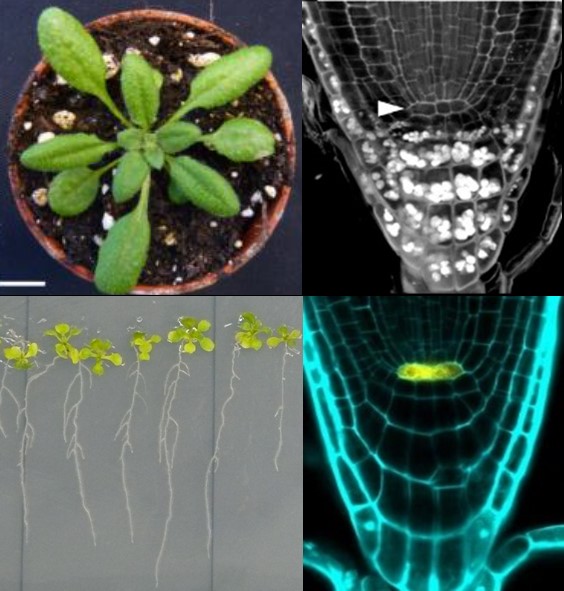12.10.2021: Paul TSCHUDEN (Graz) Molecular Regulation of Root Meristem Activity, HS 31.11, Institut für Biologie, Bereich für Pflanzenwissenschaften, Schubertstraße 51, 17:00 Uhr.
In plant development, only the basic architecture is laid down during embryogenesis. Development of the post embryonically formed organs in above and below ground tissues is maintained continuously throughout the entire plant life by apical meristems. Molecular genetic approaches have been used to study development in the model organism Arabidopsis thaliana. These efforts resulted in the identification of numerous genes involved in the regulatory processes of development, revealing general principles of plant growth. The root apical meristem (RAM) contains a niche of stem cells that are the progenitors of all post embryonic root cells and, therefore, has been of interest for researchers ever since.
In our lab, we have recently identified a group of heavy metal associated isoprenylated plant proteins (HIPPs) that have a profound effect on the root stem cell niche in Arabidopsis. Most of the members of this plant-exclusive protein family have not yet been functionally characterized. The loss-of-function of HIPP genes investigated in this project lead to several developmental defects, including distinct changes in root stem cell activity. Identified hipp mutants displayed a loss of columella stem cell identity as manifested by starch accumulation in these cells. Deciphering HIPP gene function will contribute to a better understanding of RAM activity as well as stem cell maintenance..
